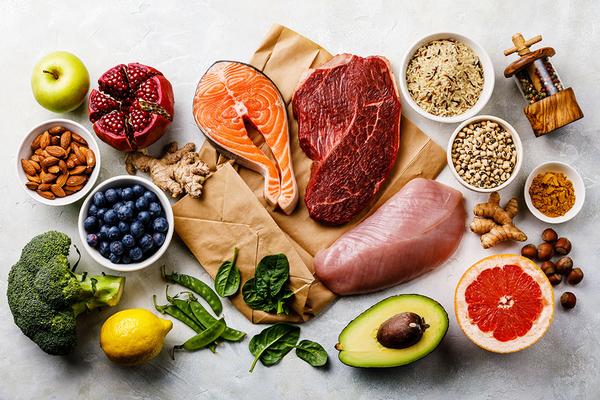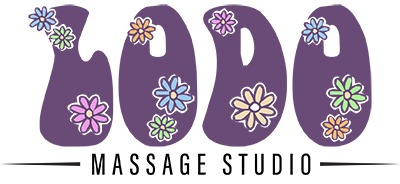The Essential Nutrients Your Body Needs to Recover from Exercise
(And some common healthy food items they’re found in)
By Hanna Kim - January 10, 2019
It’s well-known that exercise is something our bodies regularly need to stay strong and healthy. It’s a great time of year to rehash your health goals and figure out a fitness plan that makes sense for your day-to-day life, and one that you can realistically carry out for the whole year.
A big deterrent to exercise for many people is the recovery time. Fatigue, soreness, and intense hunger are common symptoms to feel, especially if you’re first getting back into a workout and pushing yourself (too) hard.
Diet can make a huge difference for your recovery. Keep in mind you need to get the proper nutrients to heal your muscles and get you ready for another day of training. Here are some essential nutrients for a recovery diet:
Proteins
The obvious part of a recovery diet is protein. Having a good source of protein 30 minutes before your workout and immediately after your workout can have highly beneficial results. Protein provides a source of energy to burn during rigorous exercise, and after, it provides the nutrients your body needs to repair damaged muscles and build new muscle cells.
Both omnivores and vegetarians have plenty of options for high-quality proteins. Eggs, yogurt, (sensibly sized portion of) baked lean meats are all good sources of proteins. Vegans and those wanting to incorporate more of a plant-based diet can add nuts and legumes like edamame, beans, and lentils. Even a medium stalk of broccoli and a medium potato (skin on) have about 5g protein.
Carbohydrates
Pop culture may have demonized carbs, but this macronutrient is necessary to the proper function of our bodies. Carbohydrates are important for a recovery diet because it also increases your blood sugar concentration and allows for the liver and muscles to replenish glycogen so we have an immediate source of energy to use.
Our bodies are very good about telling us what it needs but doesn’t necessarily care what the source is. Intentionally eating healthy carbs like whole-grain bread, oatmeal, or a fruit and veggie smoothie helps you fight off cravings for unhealthy sugars like candy or cake.
Vitamin C and Zinc
A balanced and varied diet helps our bodies absorb the numerous nutrients we need to thrive. Two vital nutrients to make sure you have enough are vitamin C and zinc, as they help your body heal. Vitamin C is necessary for to produce collagen, which is used to repair injured tendons, ligaments, and wounds that might arise for the many adventure junkies in Denver while mountain biking in Golden or snowboarding at Copper. Zinc is used in wound healing as well and promotes cell division and cell growth, as well as the breakdown of carbs.
It’s a good time of year to eat more citrus fruits high in Vitamin C. It is also available in kiwis, strawberries, potatoes, broccoli, and bell peppers. Zinc is found in animal foods including meat, fish, poultry, and dairy, but can also be found in whole grain bread and cereals, legumes, nuts, and seeds.
Fluids
An intense workout, whether you’re running through City Park or hiking a 14er, is bound to dehydrate your body, especially with the dry Mile High City altitude. Colder temperatures in the mountains and sweat quickly dissipating due to the dry climate in Colorado may trick you into thinking you’re fine. Make sure you’re drinking enough water, especially during and after training. For activities that make you sweat, electrolytes can help your body retain enough fluid.
Take care of your body with exercise and proper nutrients and be amazed by all it does for you!
Â
< Go Back
A big deterrent to exercise for many people is the recovery time. Fatigue, soreness, and intense hunger are common symptoms to feel, especially if you’re first getting back into a workout and pushing yourself (too) hard.
Diet can make a huge difference for your recovery. Keep in mind you need to get the proper nutrients to heal your muscles and get you ready for another day of training. Here are some essential nutrients for a recovery diet:
Proteins
The obvious part of a recovery diet is protein. Having a good source of protein 30 minutes before your workout and immediately after your workout can have highly beneficial results. Protein provides a source of energy to burn during rigorous exercise, and after, it provides the nutrients your body needs to repair damaged muscles and build new muscle cells.
Both omnivores and vegetarians have plenty of options for high-quality proteins. Eggs, yogurt, (sensibly sized portion of) baked lean meats are all good sources of proteins. Vegans and those wanting to incorporate more of a plant-based diet can add nuts and legumes like edamame, beans, and lentils. Even a medium stalk of broccoli and a medium potato (skin on) have about 5g protein.
Carbohydrates
Pop culture may have demonized carbs, but this macronutrient is necessary to the proper function of our bodies. Carbohydrates are important for a recovery diet because it also increases your blood sugar concentration and allows for the liver and muscles to replenish glycogen so we have an immediate source of energy to use.
Our bodies are very good about telling us what it needs but doesn’t necessarily care what the source is. Intentionally eating healthy carbs like whole-grain bread, oatmeal, or a fruit and veggie smoothie helps you fight off cravings for unhealthy sugars like candy or cake.
Vitamin C and Zinc
A balanced and varied diet helps our bodies absorb the numerous nutrients we need to thrive. Two vital nutrients to make sure you have enough are vitamin C and zinc, as they help your body heal. Vitamin C is necessary for to produce collagen, which is used to repair injured tendons, ligaments, and wounds that might arise for the many adventure junkies in Denver while mountain biking in Golden or snowboarding at Copper. Zinc is used in wound healing as well and promotes cell division and cell growth, as well as the breakdown of carbs.
It’s a good time of year to eat more citrus fruits high in Vitamin C. It is also available in kiwis, strawberries, potatoes, broccoli, and bell peppers. Zinc is found in animal foods including meat, fish, poultry, and dairy, but can also be found in whole grain bread and cereals, legumes, nuts, and seeds.
Fluids
An intense workout, whether you’re running through City Park or hiking a 14er, is bound to dehydrate your body, especially with the dry Mile High City altitude. Colder temperatures in the mountains and sweat quickly dissipating due to the dry climate in Colorado may trick you into thinking you’re fine. Make sure you’re drinking enough water, especially during and after training. For activities that make you sweat, electrolytes can help your body retain enough fluid.
Take care of your body with exercise and proper nutrients and be amazed by all it does for you!
Â

